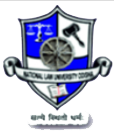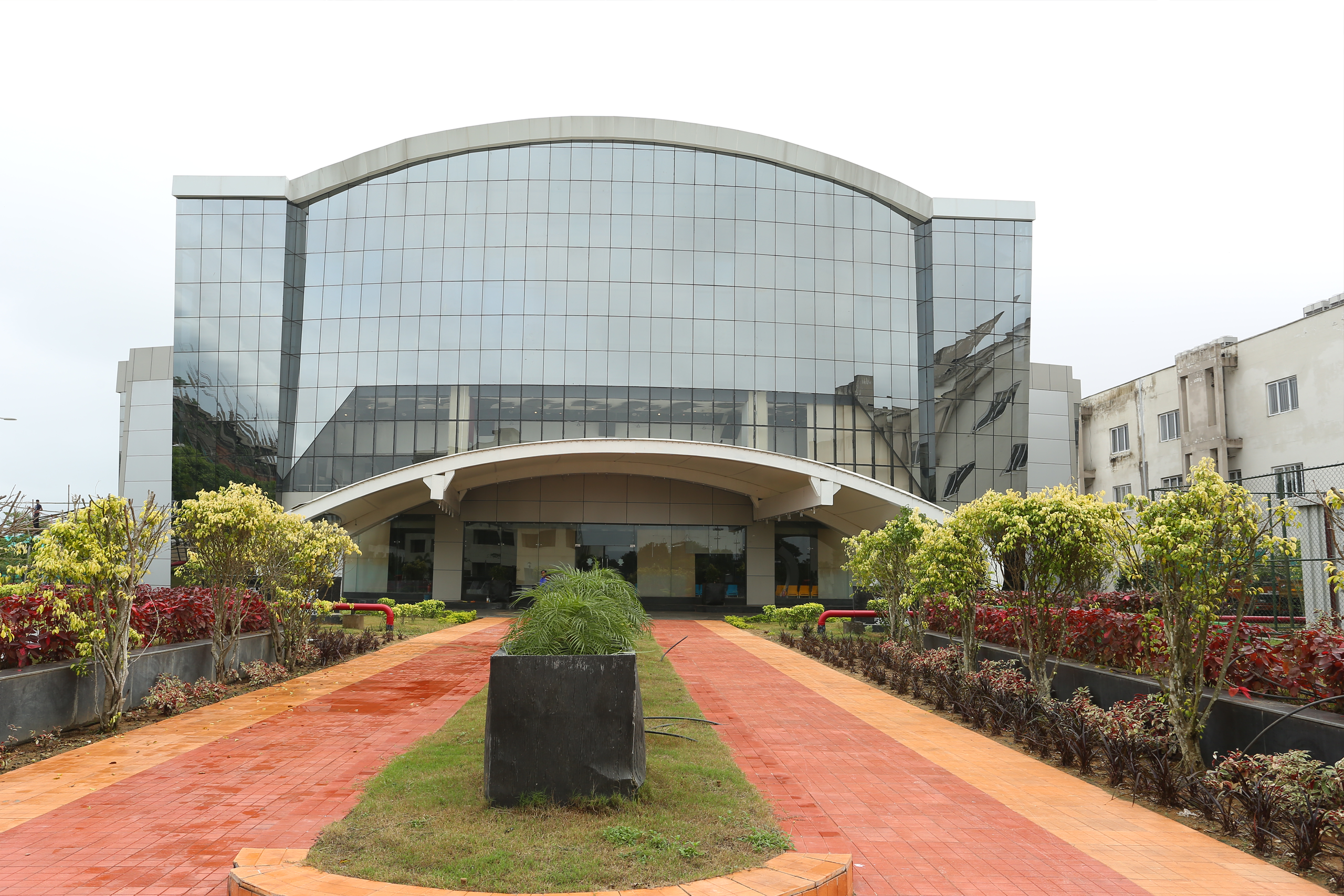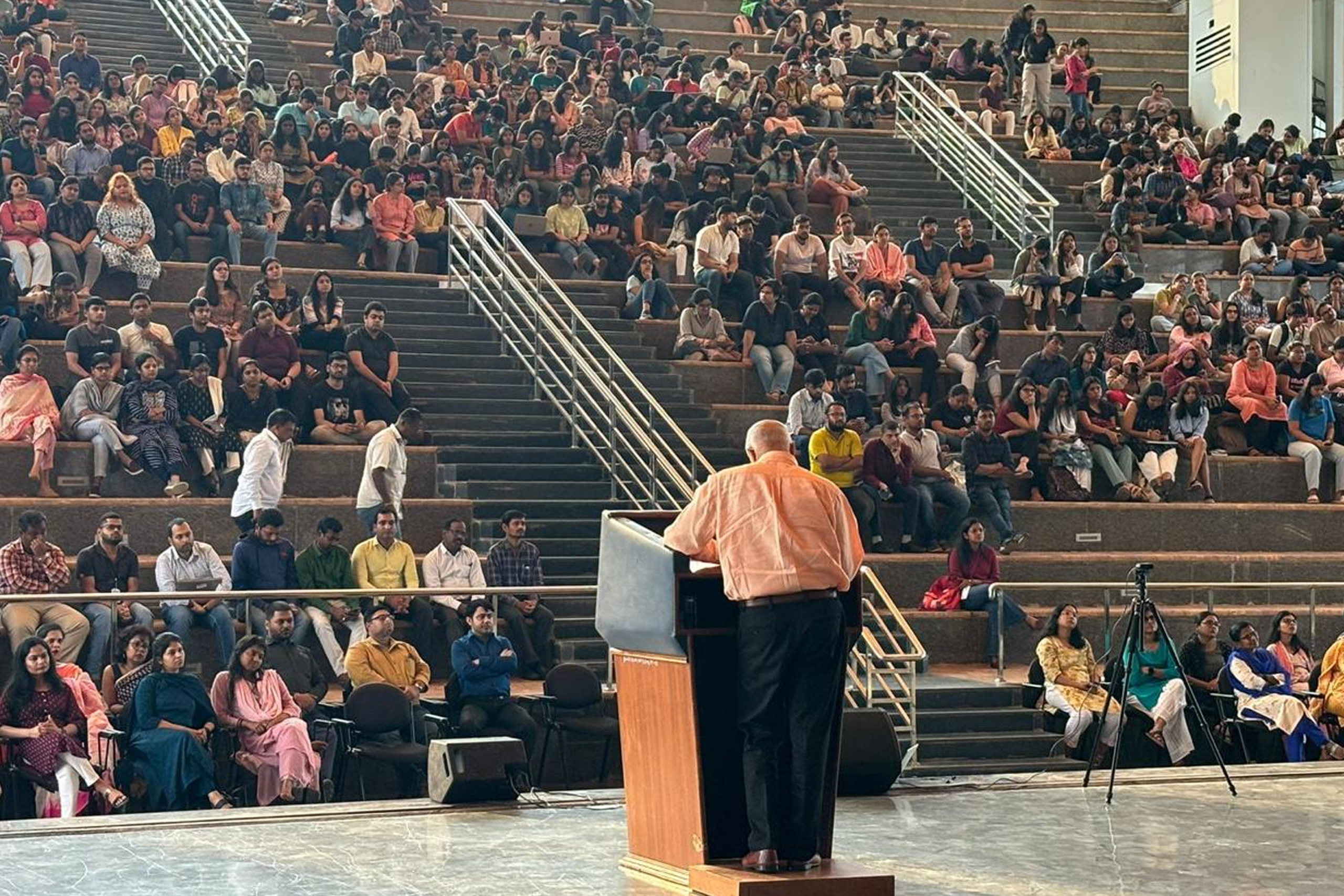The Intellectual Property Analysis and Advocacy Centre (IPAAC), NLUO organized a Workshop on Intellectual Property Rights Management and Awareness in collaboration with CIPAM
28 Feb 2020
The Intellectual Property Analysis and Advocacy Centre (IPAAC), under the aegis of Hon’ble Vice Chancellor Prof. (Dr.) Shri Krishna Deva Rao and the Registrar (I/C) Dr. Yogesh Pratap Singh, successfully organized a Workshop on Intellectual Property Rights Management and Awareness in collaboration with CIPAM (Cell for IPR Promotion and Management), Department of Promotion of Industry and Internal Trade. Held during the course of 2 days, 5 esteemed practitioners in the field of Intellectual Property Rights addressed the students of National Law University Odisha to give them the required practical knowledge about the field and the practice.
Mr. Shubham Istrewal (Assistant Manager, CIPAM), Dr.Prithipal Singh (Assistant Controller of Patents and Designs), Ms. Sukku (Senior Patent Associate, SS Rana & Co.), Mr. Vikrant Rana (Managing Partner, SS Rana & Co.), Mr. Rajiv Suri (Partner, RNA Technology and IP Attorneys) were the respected resource persons for this Workshop. They covered various aspects of IP Rights including but not limited to Patents, Trademark, Copyrights, Designs and Commercialization of Intellectual Property Rights.
The event kicked off with the first session primarily focussing on the IPR Regime observed in India and the initiatives taken by Government in furtherance of one of the country’s primary goals which is to protect the IP Rights in India. Mr. Shubham Istrewal, being the Assistant Manager of CIPAM, was also in the best position to explain the role of CIPAM in order to extend help to the Government for this purpose. The second session was taken by Dr.Prithipal Singh who encapsulated the recent trends this country has witnessed in terms of patent, copyright and trademark applications signalling towards a higher rate of protection of IP Rights. He also spoke extensively about the changes which have happened in filing and grant process of these IP Rights. Ms. Sukku was then called upon to profess the budding lawyers about the existing practice of patents. Being someone who has been in the advocacy process of Patents, she chose to speak about the drafting and the procedure observed in Patent Application and Examination thus providing an outlook to the students which is not just textual but practically applicable. Mr. Vikrant Rana then took up the theme of designs, its registration process and the overlap of designs with other Intellectual Property Rights. The audience kept the esteemed speakers engaged with insightful questions into the practice throughout the first day.
On the second day, we welcomed Mr. Rajiv Suri on the dais for imparting his knowledge on Trademarks. He spoke in detail about Trademarks; its origin, its requirements, its importance, application procedure, objections thus covering end-to-end aspects of the subject. He gave recent examples of Trademarks infringement which really engaged the audience to be more involved in the session. Mr. Shubham Istrewal then concluded the Workshop by professing on the Commercialization of Intellectual Property and how it is a valid part of the management of IP Rights. The session covered important aspects such as specific contractual terms in the agreements, ownership aspect of the Intellectual Property, its transfer and the importance of confidentiality and partnerships.
The event was very popular among students as it gave an insight into the practical application of the knowledge they are gaining theoretically. This practical knowledge would be extremely beneficial for them if they choose Intellectual Property Rights as a field of profession. In the end, IPAAC thanked the Dignitaries for gracing us with their knowledgeable personas and were willing to share their invaluable knowledge. CIPAM was extremely helpful to IPAAC in organizing this session and this workshop would not have been a success had it not been extreme co-operation from CIPAM. This Workshop helped the students to broaden their horizons for both knowledge and scope for future employment in the field of IPR.





